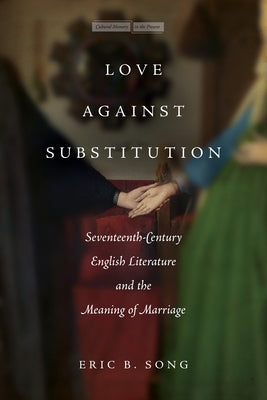Description
Are we unique as individuals, or are we replaceable? Seventeenth-century English literature pursues these questions through depictions of marriage. The writings studied in this book elevate a love between two individuals who deem each other to be unique to the point of being irreplaceable, and this vocabulary allows writers to put affective pressure on the meaning of marriage as Pauline theology defines it. Stubbornly individual, love threatens to short-circuit marriage's function in directing intimate feelings toward a communal experience of Christ's love.
The literary project of testing the meaning of marriage proved to be urgent work throughout the seventeenth century. Monarchy itself was put on trial in this century, and so was the usefulness of marriage in linking Christian belief with the legitimacy of hereditary succession. Starting at the end of the sixteenth century with Edmund Spenser, and then exploring works by William Shakespeare, William Davenant, John Milton, Lucy Hutchinson, and Aphra Behn, Eric Song offers a new account of how notions of unique personhood became embedded in a literary way of thinking and feeling about marriage.
Author: Eric B. Song
Publisher: Stanford University Press
Published: 04/26/2022
Pages: 336
Binding Type: Paperback
Weight: 1.05lbs
Size: 5.90h x 8.90w x 1.00d
ISBN13: 9781503631403
ISBN10: 1503631400
BISAC Categories:
- Literary Criticism | English, Irish, Scottish, Welsh
- History | Modern | 17th Century
- Religion | Christianity | History
About the Author
Eric Song is Associate Professor of English Literature at Swarthmore College. He is the author of Dominion Undeserved: Milton and the Perils of Creation (2013).

